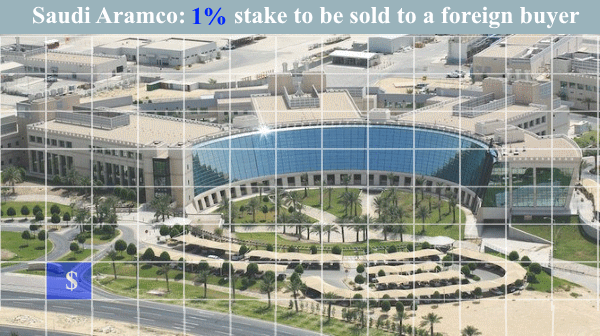As the OPEC+ in a surprise move cancelled the
ministerial meeting at the eleventh hour, by coincidence, Prince Mohamed bin
Salman, the crown prince of Saudi Arabia known as MBS, gave a rare interview to
a Saudi journalist on Tuesday.
The crown prince heaped praise on the journalist at
the outset, saying that the journalist in question was his favourite.
In the interview that lasted longer than an hour,
the crown prince touched upon a wide range of subjects that really matter to
the Kingdom in the years to come.
One of the subjects that he discussed in the
interview, which caught global attention, was his plan to sell 1% stake in the
world’s largest oil company, Saudi Aramco that could not stem the tide of
cumulative impact of the Coronavirus pandemic last year.
“There are talks now for the acquisition of a 1
percent stake by a leading global energy company in an important deal that
would boost Aramco’s sales in … a major country,” he said in the interview, while
leaving the details, especially the lucky buyer, open to speculation; no sooner
had the crown prince said it than the analysts took over the role of
speculation - in addition to what they usually do.
Saudi Aramco has been grabbing headlines, many more
than a company of similar magnitude does, since it launched the IPO, initial
public offering, in 2019; it managed to raise $25.6 billion in the event.
The crown prince relies heavily on the company to
make his grand project, Vision 2030, a resounding success. The project,
however, has already faced mounting challenges, especially due the pandemic,
something that neither the crown prince nor any man on the earth anticipated
two years ago; he knows that he has to take into account new ground realities
in light of the Coronavirus disaster.
Since the economy was shrunk, the Saudi government
was forced to introduce VAT at 15%; the crown prince says it will only last 5
years and afterwards, he plans it to be somewhere between 5 – 10%.
As for the unemployment rate that at present stands
at 11%, the crown prince says by 2030, it will be reduced to 7%, when his grand
vision takes wings in the next few years.
On a more positive note, he has been unusually conciliatory
towards Iran, the regional rivalry of the Saudi Arabia: he said that he wanted
better ties with the neighbour; he, however, expected of reciprocity from Iran,
especially in curtailing its nuclear programme and controlling the regional
militias, such as Houthi rebels in Yemen.
The decision by the OPEC+ to pump more oil into the
market and the plan by the crown prince to sell 1% stake of the most important
company in the Kingdom provided the crude oil market with the much needed
impetus at a time, when the grim pictures of the pandemic in the world’s third biggest buyer have been
flashing across TV screens.
The interview:







